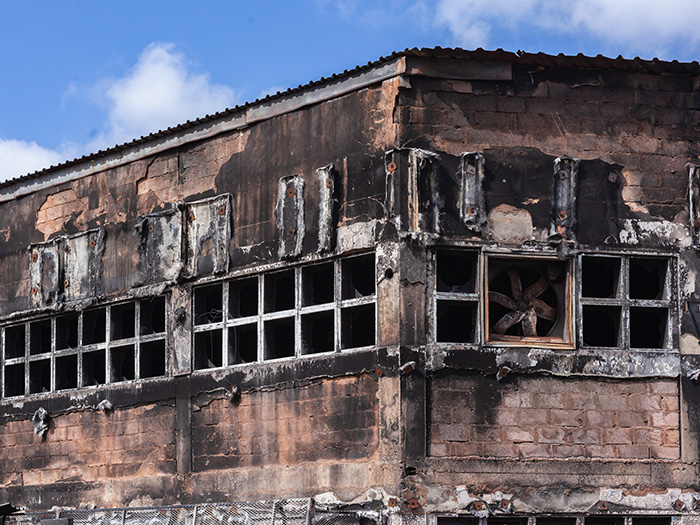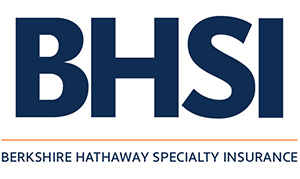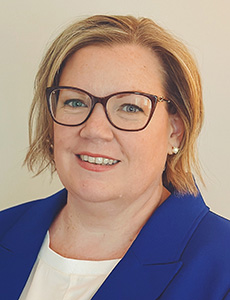Risk Scenario
A Contingent Business Interruption Debacle
Disclaimer: The events depicted in this scenario are fictitious. Any similarity to any corporation or person, living or dead, is merely coincidental.
PART ONE: HOW SWEET IT IS
Hitting the right notes when making cookies for the mass market is a little like the lessons learned from Goldilocks and the Three Bears. Chewy, but not too doughy. Crisp, but not too brittle. Sweet, but not too sugary.

Based in Reno, Nevada, Mountain Mama seems to have it figured out. The company was founded by two champion female skiers, both Nevada natives, who ploughed their winnings from the pro circuit into the business. In its seven years of existence, the cookie-maker has rocketed into the $20 million sales bracket with the deftness of a high-performing slalom skier.
Mountain Mama makes a sweet profit, but its founders, Peggy DeNunzio and Taylor Schmedeke, are not to be messed with. Both are great athletes, still in near-peak condition, with a lot of charisma and business savvy.
In their sourcing, they are very Western States-focused. In just one example, dried cherries from Washington state nestle next to organic oats harvested from North Dakota in their best-selling cookie, the Mega Mutha.
For college students and the young at heart of all stripes, a bag of Mountain Mama organic cookies feels like a must when packing for a long weekend, skiing, hiking or otherwise enjoying the great outdoors in any part of the country.
In the summer of 2023, DeNunzio and Schmedeke are cooling down after a hike in the foothills of the Sierras, flush from their exertions and their business success. Looking out at the sunset framed by mountaintops, DeNunzio gives voice to her emotions.
“I mean, how lucky can a girl get?” she says to Schmedeke. The moment is so precious that a tear comes to the eye of her usually taciturn and highly competitive partner.
PART TWO: NOT SO FAST
As noted above, the Mountain Mama supply chain is largely Western in focus. It is also, by design, structured to include as many women- and minority-owned businesses as possible.

Such a business is Esencia, a Latina-owned distributor of extracts made from California products such as almonds, lavender and citruses. Part of Mountain Mama’s brand is that its cookies are made from ingredients of unimpeachable quality and authenticity, and as a direct supplier, Esencia fits that description very well.
Esencia has been with Mountain Mama almost from the start. It would be hard to find another distributor who fits Mountain Mama’s approach to business quite so well.
It’s in the fall of 2024 that the relationship hits a boulder.
A fast-moving wildfire near Merced, California, obliterates the manufacturing facility of Bustamante Brothers, Esencia’s primary supplier of high-quality organic almond extract. The 30,000-square-foot factory is a complete loss.
To her credit, the owner of Esencia is quick to get on the phone and inform the Mountain Mama leadership team of the event.
When asked when Esencia might be able to source almond extract of the same quality for Mountain Mama cookies, she answers, “We don’t really know.”
At a hastily arranged meeting including operations, risk management and Mountain Mama company leadership, an uncomfortable truth emerges: Mountain Mama’s strict sourcing guidelines mean that no ready replacement for the Esencia-distributed almond extract is on the horizon. The team can double-step it to find one, but they don’t have one yet.
 “From what I can tell, we could start sourcing from a non-organic source in Italy,” the head of operations begins, but he doesn’t get too far.
“From what I can tell, we could start sourcing from a non-organic source in Italy,” the head of operations begins, but he doesn’t get too far.
“Hold it right there,” says Peggy DeNunzio. “Non-organic is not on the table.”
The head of operations looks to Taylor Schmedeke for support, but finds none.
“That’s not why we’re doing this,” she says. “We don’t want pesticides or herbicides anywhere near our products. And furthermore, we are advocates for short supply chains. That means not sourcing materials that have to get flown in carbon dioxide-producing jets.
“When you look at our product lineup, how many of our products have that almond extract in it?” Schmedeke continues.
“We’re talking about half of our line, six out of 12 products,” is the answer from operations.
At that meeting, Freddie McDevitt, the company’s risk manager, gets a very queasy feeling in the pit of his stomach.
Terms such as “business interruption” and “direct and indirect coverage” start to haunt his thoughts.
“What was that phrase the broker used — ‘Contingent BI’?” he says to himself. “Contingent business interruption,” he says out loud, by mistake and to no one in particular.
“What was that, Freddie?” Taylor Schmedeke says.
“Nothing. Just making a note to myself. Sorry for the interruption,” McDevitt says.
Not wanting to get quashed in front of leadership, McDevitt keeps his head down for the remainder of the morning meeting but makes a mental note to call the company’s insurance broker as soon as he can.
PART THREE: OFF A CLIFF
The news is not good, and it’s getting worse on a daily basis.
The broker confirms that Mountain Mama has business interruption coverage in the event that a direct supplier, i.e. Esencia, suffers physical damage to its property from a peril that is insured by Mountain Mama’s policy, and can’t fulfill its obligations to Mountain Mama.

Mountain Mama does not have indirect coverage, which may have reimbursed it for the contingent business interruption losses it is suffering as a result of the destruction by fire of the Bustamante Brothers almond extract factory.
“Are you sure about that?” says McDevitt.
“Sorry,” says the broker, “but the policy is very clear. There is no coverage in place when an indirect supplier suffers damage.”
McDevitt feels like he has been punched in the gut.
We’re two weeks into the aftermath of the fire that hit Bustamante Brothers, and Mountain Mama is feeling the pinch. It’s run out of the high-quality organic almond extract it needs to meet the owners’ standards.
Half of its line is shut down and sales losses stemming from that fact are adding up to $200,000 a week.
That’s coming straight out of the top line with no reimbursement possible.
“Are you trying to tell me that none of these losses are covered?” Peggy DeNunzio says in a tense conversation with McDevitt.
“No. There is no coverage in place when an indirect supplier suffers a fire,” he explains.
“We source, whether directly or indirectly, from companies that are based in wildfire-prone areas!” DeNunzio thunders. “I don’t think it would have been too much to ask for us to buy coverage in the second and third tiers of our supply chains,” she says.
McDevitt has no answer to that.
Both the head of operations and McDevitt, the company’s risk manager, feel like they are heading to hell in a fast-moving elevator.
The head of operations is striking out on getting an adequate organic almond extract replacement. Since DeNunzio got the lowdown on coverage, both of the business founders have been freezing McDevitt out.
Finally, five weeks after the fire, Esencia’s leadership sees a glimmer of hope that it can pick up almond extract to Mountain Mama’s specifications.
But love Mountain Mama as it does, Esencia also supplies extract to a contract manufacturer for one of the biggest organics-focused grocery chains on the planet. And the extract still needs to be lab-tested to determine it’s what the suppliers say it is.
Even when Esencia does score a supply, Mountain Mama will have to wait. For how long, no one knows.
Contingent business interruption losses stand at a million, all uninsured. A conservative estimate for how bad losses could get is not even possible, given the available information.
Layoffs at Mountain Mama are underway, and 20% of the workforce — including Freddie McDevitt — is out.
DeNunzio and Schmedeke are in a state of shock.
“How could something this sweet get so messed up?” Schmedeke asks her partner.
“Don’t know — or I do know but can’t face it,” DeNunzio says, choking up.
And this time, it’s her eye that sheds a tear. &
![]()
Risk & Insurance® partnered with Berkshire Hathaway Specialty Insurance (BHSI) to produce this scenario. Below are BHSI’s recommendations on how to help mitigate the losses presented in the scenario. This perspective is not an editorial opinion of Risk & Insurance®.
According to Berkshire Hathaway Specialty Insurance’s Jennifer Rubin, VP, Central Region Property and Karolina Collier, VP, Property Claims, there are lessons to be learned from the Mountain Mama’s unfortunate situation.
Mountain Mama grew rapidly and intentionally restricted ingredients for its cookies to specific sources.
- Limiting suppliers to a narrow geographic region exposes you to natural catastrophes inherent in that region. Having a variety of sources at hand reduces this risk.
With Mountain Mama’s sales skyrocketed, its coverage and values did not keep pace.
- Companies must be vigilant in ensuring that values reported on the policy’s Statement of Values (SOV) are accurate as the business grows. If Indemnity payment ties to the value on the SOV, you could find yourself underinsured if your reported values (and thus your limits) are not adequate.
Failure to identify the risk from damage suffered by second and third tier suppliers — and to obtain appropriate contingent business interruption insurance for such risks — left the business unexpectedly uninsured.
- If indirect as well as direct contingent business interruption coverage had been purchased, some of the loss may have been covered.
- Work with your broker to understand what coverage is available in the market and ask them to benchmark your coverage against peers. This can help to illuminate potential shortfalls.
Have a business continuity plan in place before an incident occurs.
- This should include building in redundancies for each supplier in your supply chain and/or plans to pivot to an alternative product in the event ingredients can’t be sourced for your main product.
Be clear on your policy’s deductible in the case of Wildfire.
Is it a flat deductible or based on a percentage? Involve your broker, underwriter and/or claims team to ensure you are clear on how your policy would respond in specific loss situations. If gaps in coverage are a concern, consider parametric insurance to bridge gaps, such as deductible payments.
Consider your workforce.
Ordinary payroll coverage may cover wages while your business is out of operation, depending on the coverage and facts of the loss. If you have employees you don’t want to lose, this could help retain talented employees even when they are unable to work.
Risk and Insurance produced this scenario in conjunction with Berkshire Hathaway Specialty Insurance. This scenario is provided for general educational and informational purposes only as an example of the type of claim(s) that may be submitted under a property policy. Any facts or conclusions drawn in the scenario are for illustrative purposes and do not reflect BHSI’s position on coverage. Applicability of coverage terms depends on the actual facts of each individual claim and the terms, conditions and exclusions of the applicable insurance policy. The information contained herein is for informational purposes only and may not be relied upon as legal, financial, regulatory, compliance, or any other type of professional advice. Not all products and services are available in every jurisdiction, and insurance coverage is governed by actual policy language.










